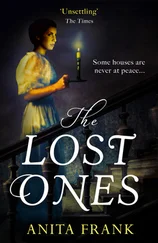“You — you’ve been taking care of me since Sunday morning? Alone? You’ve been doing everything that had to be done?”
He got up restlessly. “Missy, I had a long time in them hospitals, believe you me. What has to be done has to be done. You were burning up and clean out of your head.”
She tried to stand up but the room swam and darkened and she fell back as he hurried to her. “Now don’t try a fool thing like that!”
She sat in a huddle of misery and said, “I... I have to go to the bathroom.”
He covered his eyes with his left hand and began snapping the fingers of his big right hand, making a very loud cracking sound. “Now just a minute. Now you wait. I had something worked out.
Oh!”
He spun and hurried out. A spring slapped the screen door shut. She heard him clumping down outside stairs. Soon he was back looking pleased, carrying an old-fashioned chamber pot. Water sloshed in it as he set it down close beside the bed. The lid was from a small green garbage container. He said, “You get well enough to walk, I’ve got a privvy about a hundred feet from the cabin. I recalled finding this pot a long time ago, and I kept looking till I found it. Brush grown up around it and a mess of other stuff. I sand-scrubbed it clean as a dollar.” He moved the chair over next to the pot. “You just kind of ease yourself over, and take it slow and easy so you don’t get faint, Missy. You need me, you just yank on that cord there and it’ll jangle some cans I’ve got hung below. When you get settled back into bed you jangle them anyhow. I’ve got to cook you up a good dinner. You slept on through breakfast today, and you should be next door to starved.”
After she had crawled back into the bed and covered her legs with the sheet, she lay quietly, her eyes stinging, fingertips resting on the absurd piece of jewelry. It sounded too dramatic to tell herself she had fallen into the hands of a madman.
What had happened to everyone? Where were they?
Suddenly ravenous, she reached and grasped the cord and jangled the cans vigorously.
She heard his distant voice. “Coming, Missy. Be right there.”
That Friday, the twenty-seventh day of May, was a very hot still day. A mist hung over the land, a broad area of silvery glare showing where the sun was. The mist caught and held the aroma of the fires of the drying, dying Everglades, a faint stink — like a memory of disaster. The mist held the sharp pungencies of a hundred thousand tail pipes. Days such as this in Dade County, infrequent, corroded the broad leaves of tropical plantings, stung the eyes, smudged white roofs, and lay an almost invisible scum on the motionless water of ten thousand swimming pools. Off-season tourists, lard white from the long midwestern winter, would be deceived by the overcast look, spend hours on the beaches, and a certain predictable number would die days later of the merciless ultraviolet burns.
Raoul Kelly had worked all morning in his rented room in the heart of the Cuban colony along Southwest Eighth Street in West Miami. His second-floor room in the peeling stucco building had four windows across the front overlooking Eighth Street. They were double-hung windows, all with the bottom sash opened as far as they would go. He had taken the screens out and stacked them against the wall as invitation to any elusive breeze. Eighth Street was also Route 41, the Tamiami Trail, and the big diesel tractor-trailer trucks halted by the traffic signal a half block away, made a blue stench and resonant fartings as they worked their way back up through the gears, overwhelming the piercing nasal agonies of the gypsy singer on the big stereo juke in the cantina underneath his room.
His desk was a four-by-eight sheet of marine plywood laid across three two-drawer filing cabinets. On one wall he had scotch-taped detailed maps of Cuba, the Dominican Republic, Haiti, the Caribbean, Mexico, Central America, South America, Venezuela. He had made marks on all the maps, a private alphabetical and numerical code cross-referenced to file cards which were in a personal shorthand meaningless to anyone but himself. He had improvised an open bookcase of boards and cinderblock, and it was stacked with reference works, the overflow piled on a table beside the shelves. On another wall he had hung a big cork board to which he thumbtacked working outlines, notes to himself, reminders of appointments.
He had a sagging bed, a chest of drawers, a noisy floor fan, two straight chairs, a fraying grass rug, a shallow closet, a key to the bathroom at the back of the second-floor hallway, and an old rebuilt Underwood standard. He was a very fast four-finger typist, using unlined sheets of yellow legal-size paper. He turned such sheets in at the editorial desk at the paper. For the magazine work, he would take his final draft down the street to the bakery where Señora de Onís, wife of the owner, would type them properly and carefully onto white bond with two good carbon copies for twenty cents a page. In Havana she had been a private secretary in a large insurance agency.
Raoul Kelly had worked all morning in his underwear shorts, the floor fan hurling the stifling air at his naked back. Sweat found its tickling way down through the thick mat of black hair on his chest and belly. The sheets of copy paper stuck to the undersides of his forearms when he rested them on the desk, and had to be peeled away. Just within reach was a little radio with a cracked gold and white plastic case. He kept it at a station which announced each news break with a grandiose blast of trumpets, kept it at a volume where he could hear the trumpets and nothing else, and would hear them and reach out without conscious thought to turn the volume up.
He was doing an article in depth — a phrase which never failed to irritate him — about the background, present, and guessable future of subversion in Venezuela. From time to time he would refresh his memory by finding the right portion of the three hours of tape he had recorded during an interview with one of El Caballo’s underground agents who had defected after two years in Caracas, had slipped into the states illegally, and had been fingered for Kelly by the sister of the man who was hiding him.
Though he knew it would annoy his newspaper, he had decided to place the article in, he hoped, The Atlantic , and let the wire services pick up the news breaks from the text when it was published.
It was going reasonably well, but his concentration was shaky because of the letter in the shallow straw bowl he used as an inbasket. If he could decide how to answer it, then he could forget it.
It was on the creamy bond of the Waterman Foundation:
My dear Raoul Kelly ,
I am afraid I must be more explicit about the special problems of organization we are facing here in setting up Project Round-Table. Not least among the many reasons we asked you to join with us would be to have you, as an Area Coordinator, help select, recruit and train those field investigators who would work under your direction .
There is an increasing pressure upon us from the Director and the Board of Trustees to establish an operational structure. By dint of special pleading, motivated by my respect for your work and knowledge of your background, and also by the enlightening two days I spent in your company, I have induced my colleagues to grant one small additional grace period, but I fear that if we cannot have your affirmative answer by that date, we shall have to extend our invitation to the alternative choice, the man I told you about .
You must make a decision on or before the fifteenth day of next month, and the sooner you can decide, the more helpful it will be to me. We need you .
Читать дальше
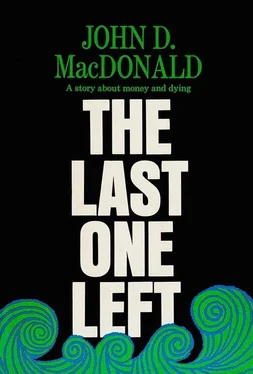

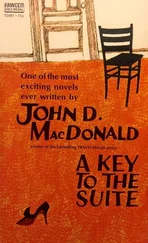
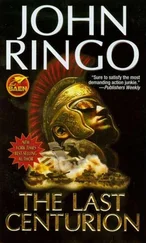


![Джон Макдональд - Wine of the Dreamers [= Planet of the Dreamers]](/books/430039/dzhon-makdonald-wine-of-the-dreamers-planet-of-thumb.webp)

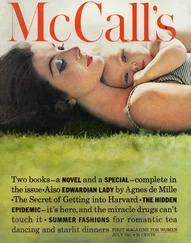
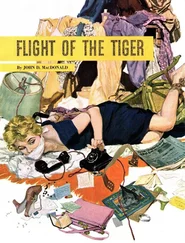
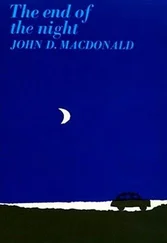
![Джон Макдональд - The Hunted [Short Story]](/books/433679/dzhon-makdonald-the-hunted-short-story-thumb.webp)
